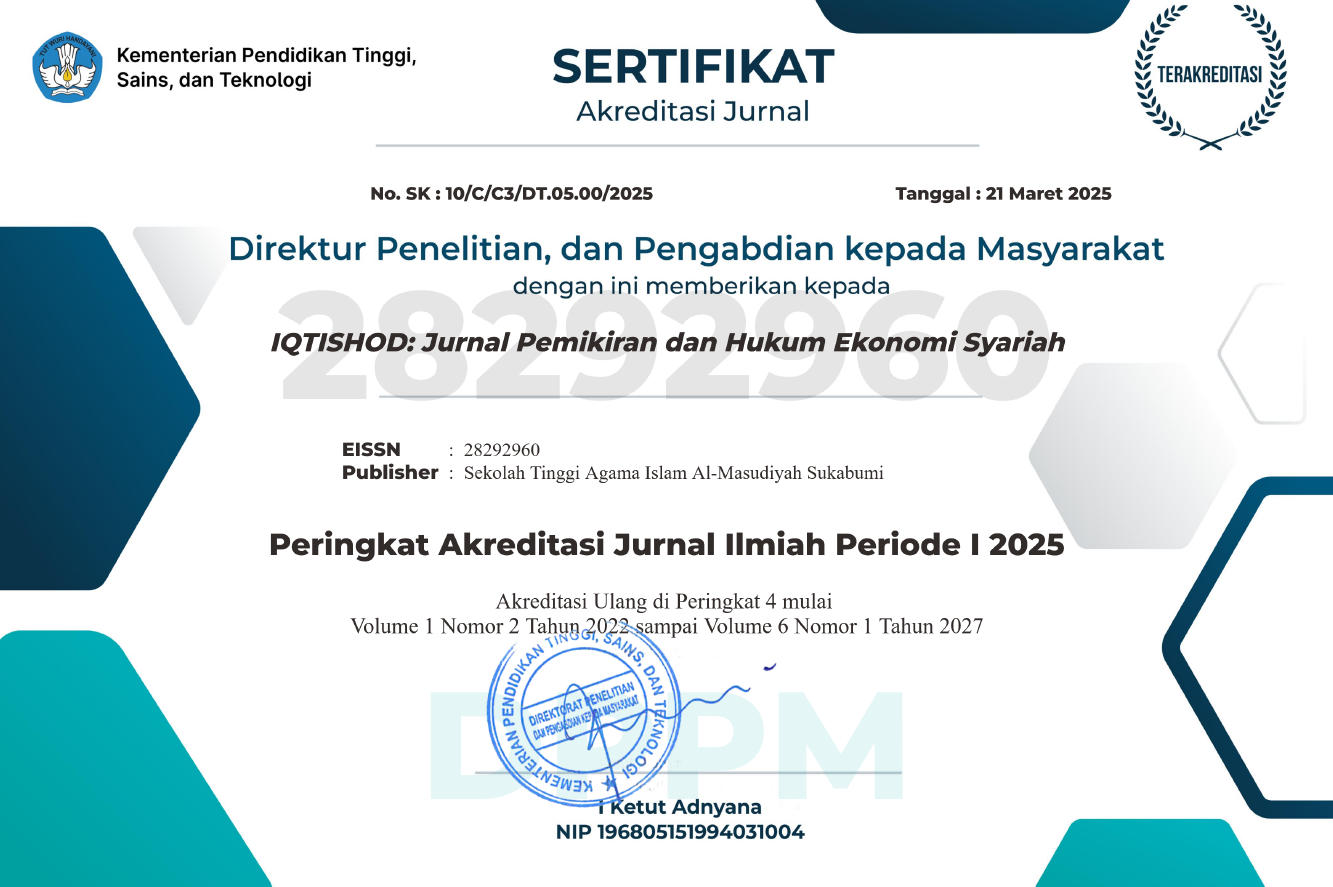Integrasi Ekonomi dan Spiritual Pemikiran Al-Syaibani dalam Hukum Ekonomi Syariah
DOI:
https://doi.org/10.69768/ji.v4i1.74Abstract
This paper explores the economic thought and legal framework of Islamic economics during the era of Al-Syaibani, a significant figure in the history of Islamic economic thought known for his contributions to understanding the concepts of work and production within an Islamic context. Al-Syaibani emphasizes the role of humans as stewards (khalifah) on earth, responsible for utilizing resources in a manner that promotes the welfare of all beings. In his view, production activities are not merely about seeking profit but are also part of the obligation to create sustainable prosperity for humanity. His renowned work, "Kitab al-Kasb," serves as a foundational text in Islamic microeconomics, addressing critical issues related to income, production, and consumption while highlighting the importance of halal practices in every economic aspect. Al-Syaibani classifies various types of economic endeavors and emphasizes agriculture as the most fundamental activity to meet human needs. He also explains that work is a form of productivity that can lead individuals to sufficiency in worldly life while simultaneously drawing them closer to Allah. Al-Syaibani's perspective on work as a religious obligation illustrates the integration of spiritual values with economic activities. He argues that while wealth has its merits, the state of being poor, accompanied by gratitude and a focus on the hereafter, holds a higher value. This study illustrates how Al-Syaibani's economic principles remain relevant in contemporary discussions of Islamic economics, advocating for a balanced approach that harmonizes material needs with ethical and moral considerations. Thus, Al-Syaibani's thought provides a strong foundation for the development of Islamic economics that is not only profit-oriented but also aligned with moral and ethical values in accordance with Islamic teachings
Downloads
Downloads
Published
How to Cite
Issue
Section
License
Copyright (c) 2025 IQTISHOD: Jurnal Pemikiran dan Hukum Ekonomi Syariah

This work is licensed under a Creative Commons Attribution-NonCommercial-NoDerivatives 4.0 International License.




